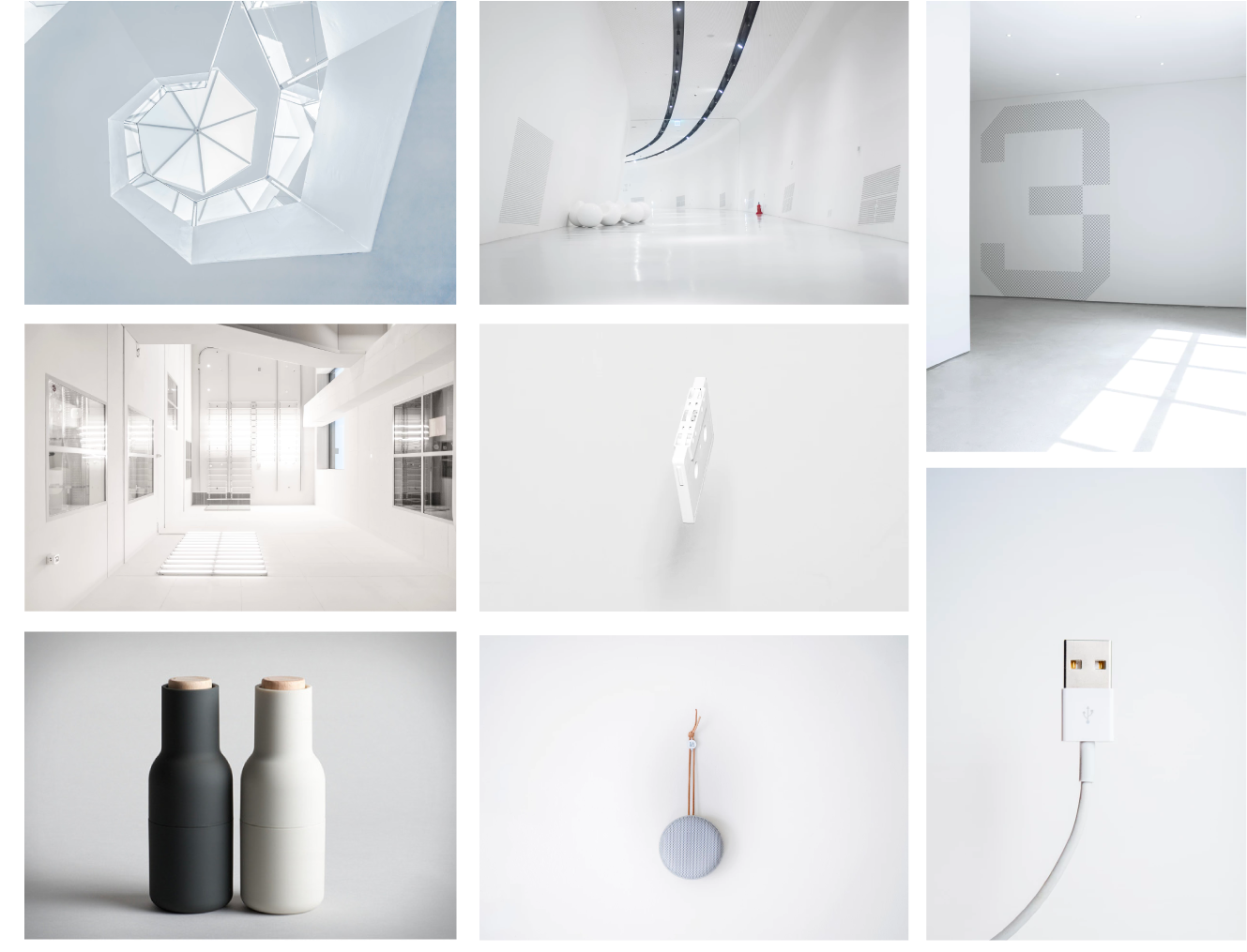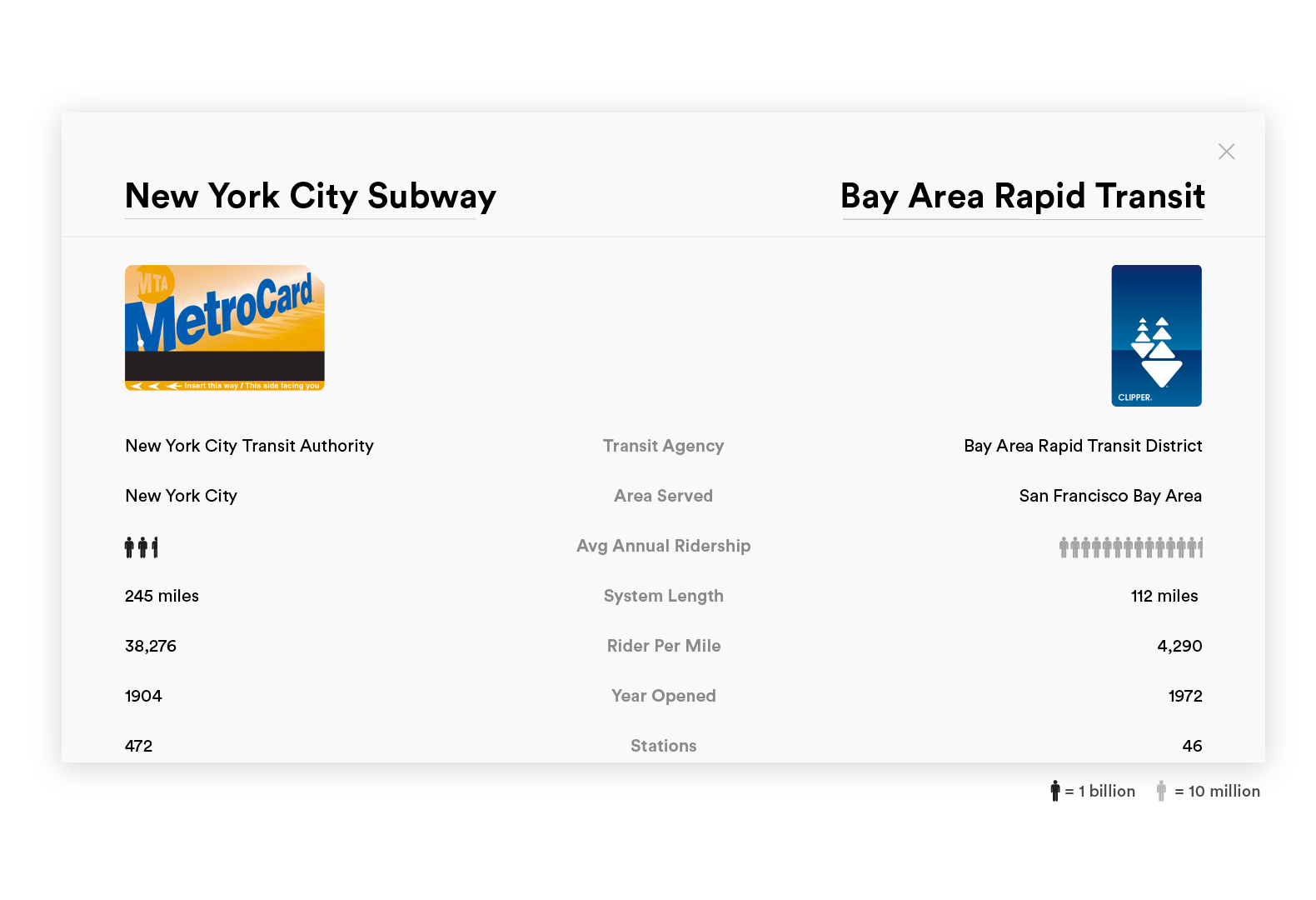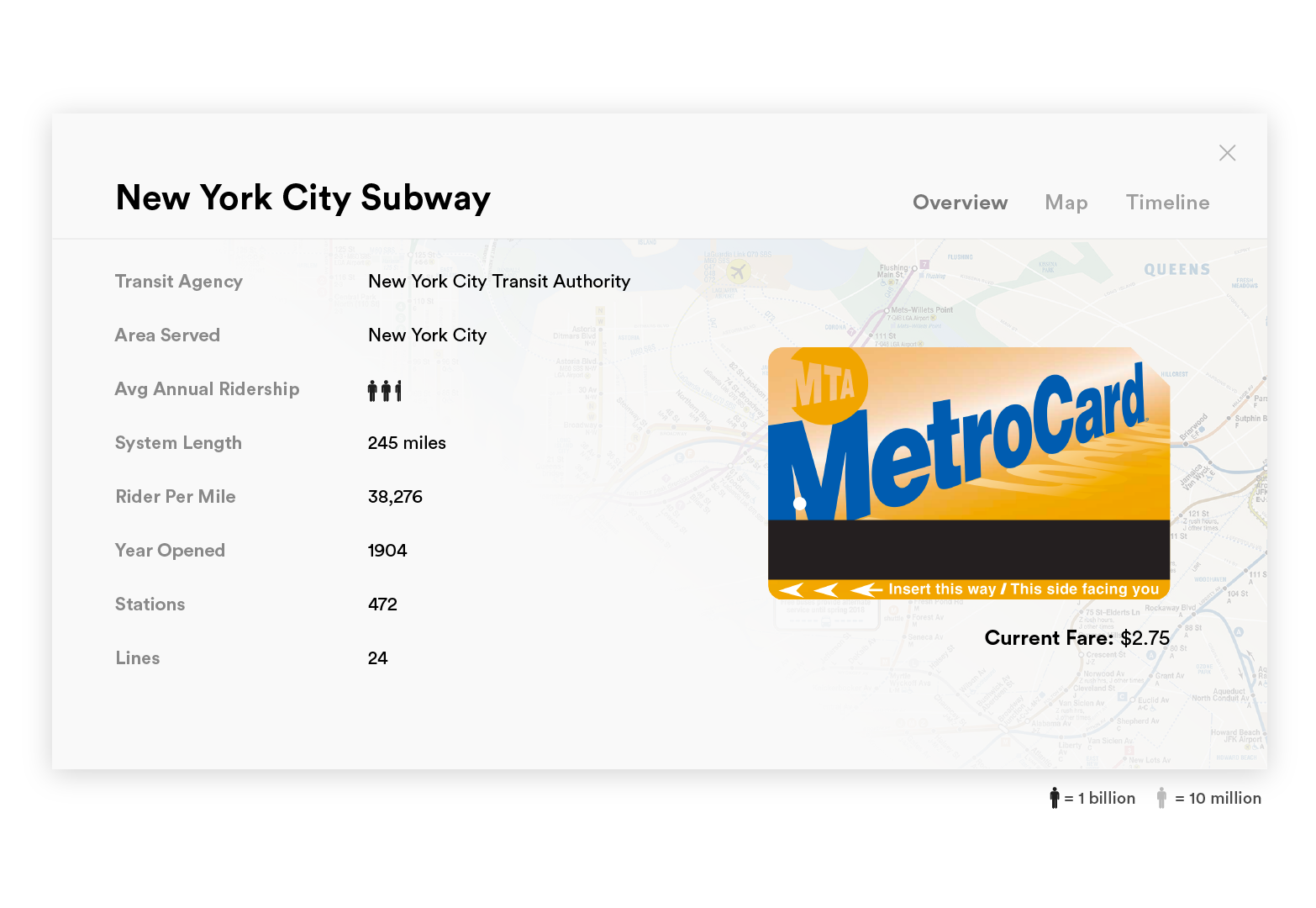“Everywhere I go, I see incredible examples of communities that have a vision for transportation and how it will impact the quality of life, mobility, economics and opportunity.” - Anthony Foxx
Mass public transportation is not only a sign of growth - it is also a key factor in the development of major cities around the United States. Public transportation moves people forward. Where are these connections happening? This data visualization project aims to explore the top 10 major mass public transit systems across the U.S. and compare them.
↓
SKETCHES
My initial focus was all on the maps. I wanted to create something where people could visualize all the little lines that kept people moving in each city. Then came the idea of comparisons and viewing statistics of each system because I wanted to provide valuable information beyond the visuals.
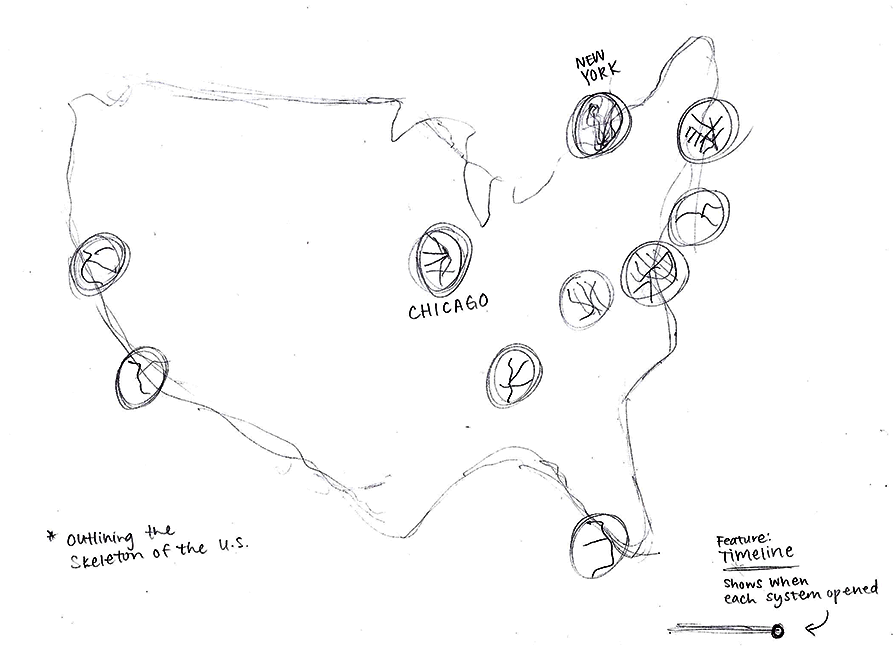
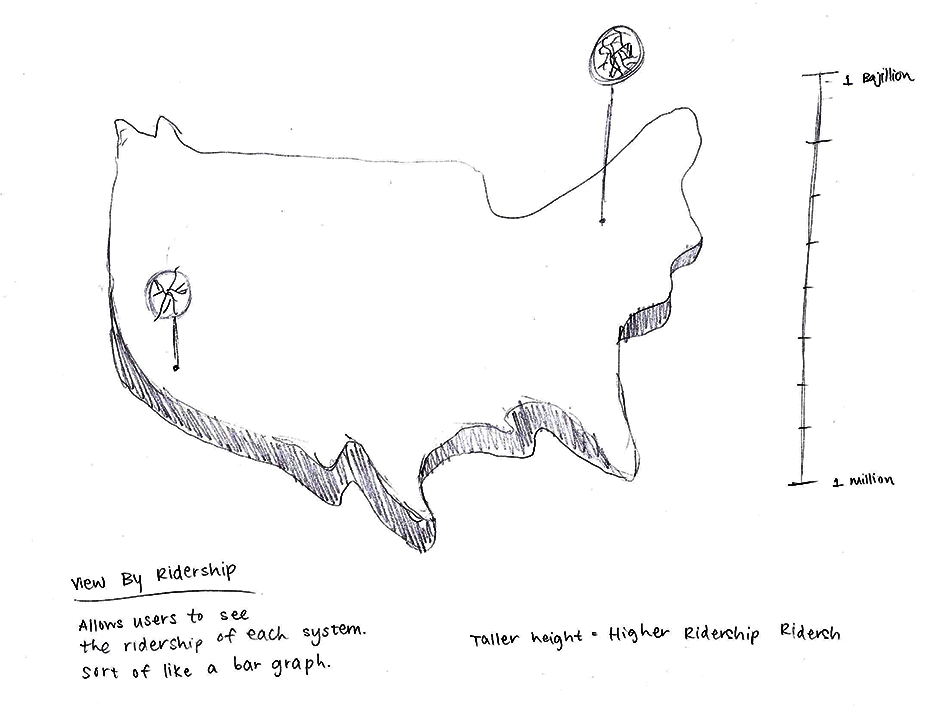
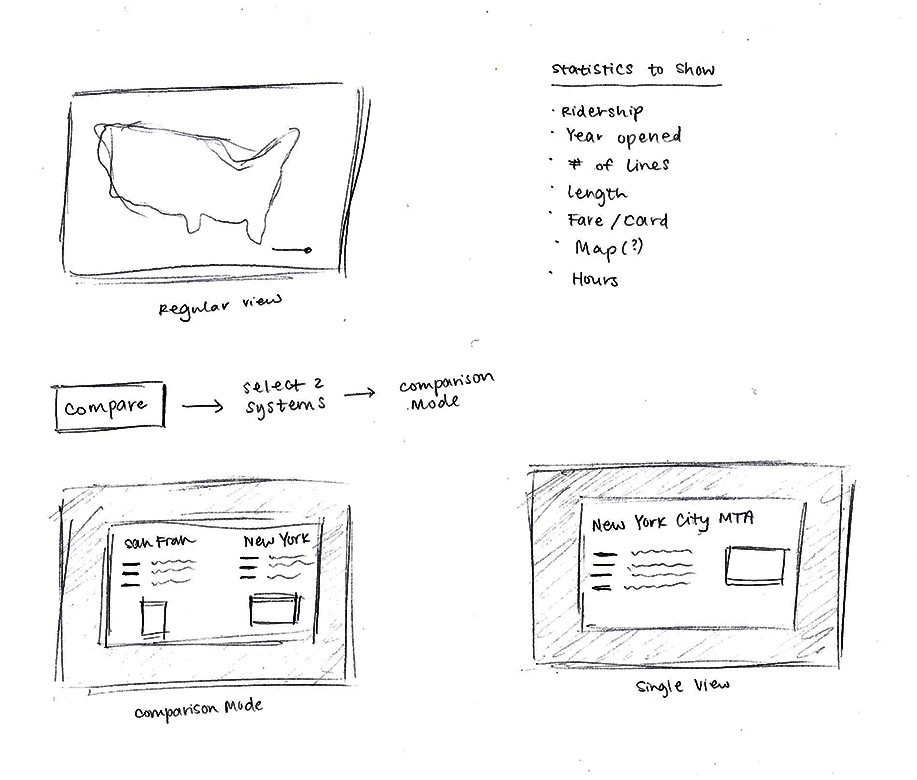
USER STORY 1
Hi, Jim!
Jim is moving from New York City to Chicago for his job. He relied heavily on the subway to get to work in NYC, so he plans on taking public transportation in Chicago as well. Jim wants to compare Chicago’s transit system to New York’s so he knows what to expect because he is completely new to Chicago’s public transit.
USER STORY 2
Hi, Candice!
Candice is spending her vacation in San Francisco. She has several friends in San Francisco but she wants to explore the city on her own as well. She plans to take public transportation to minimize her traveling costs. Candice needs a way to know what to expect because she feels nervous about visiting an unfamiliar city.
INFORMATION ARCHITECTURE
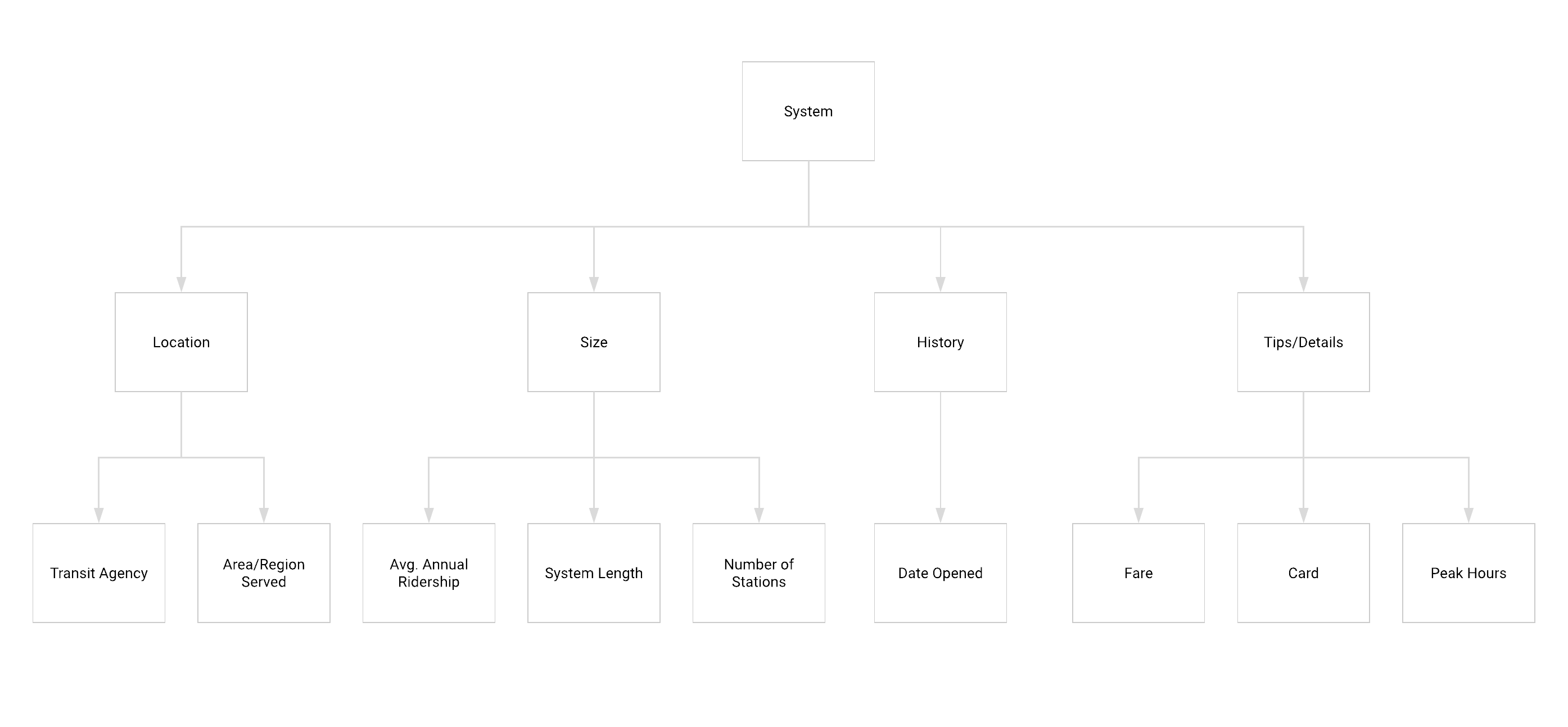
WIREFRAMES
As I was creating the wireframes, I had a lot of trouble displaying the transit maps on the U.S. map. I originally pictured the main screen as just the forms of the maps, however after realizing how tiny they are in actual scale, I decided to put the maps in magnifying bubbles.
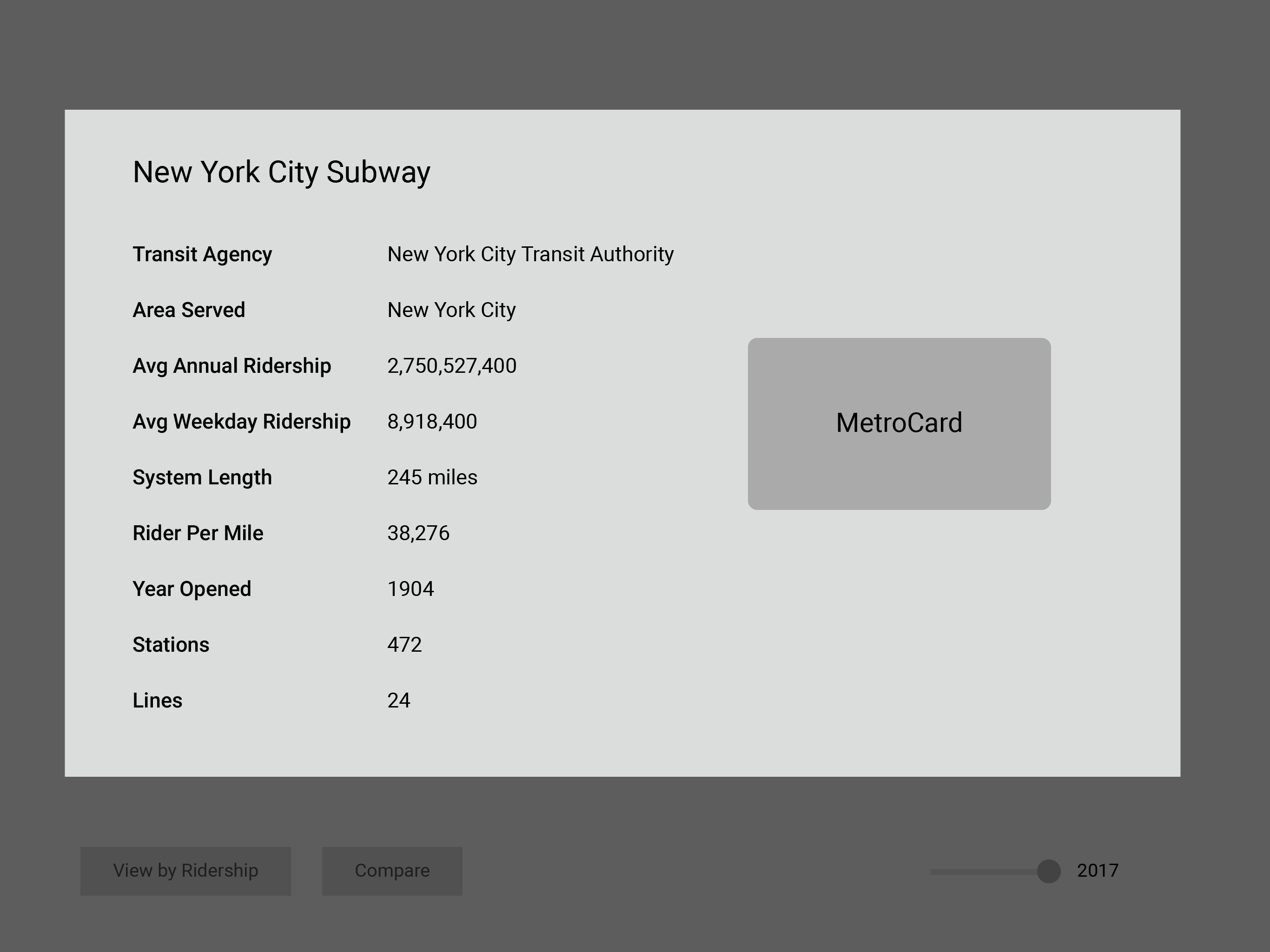
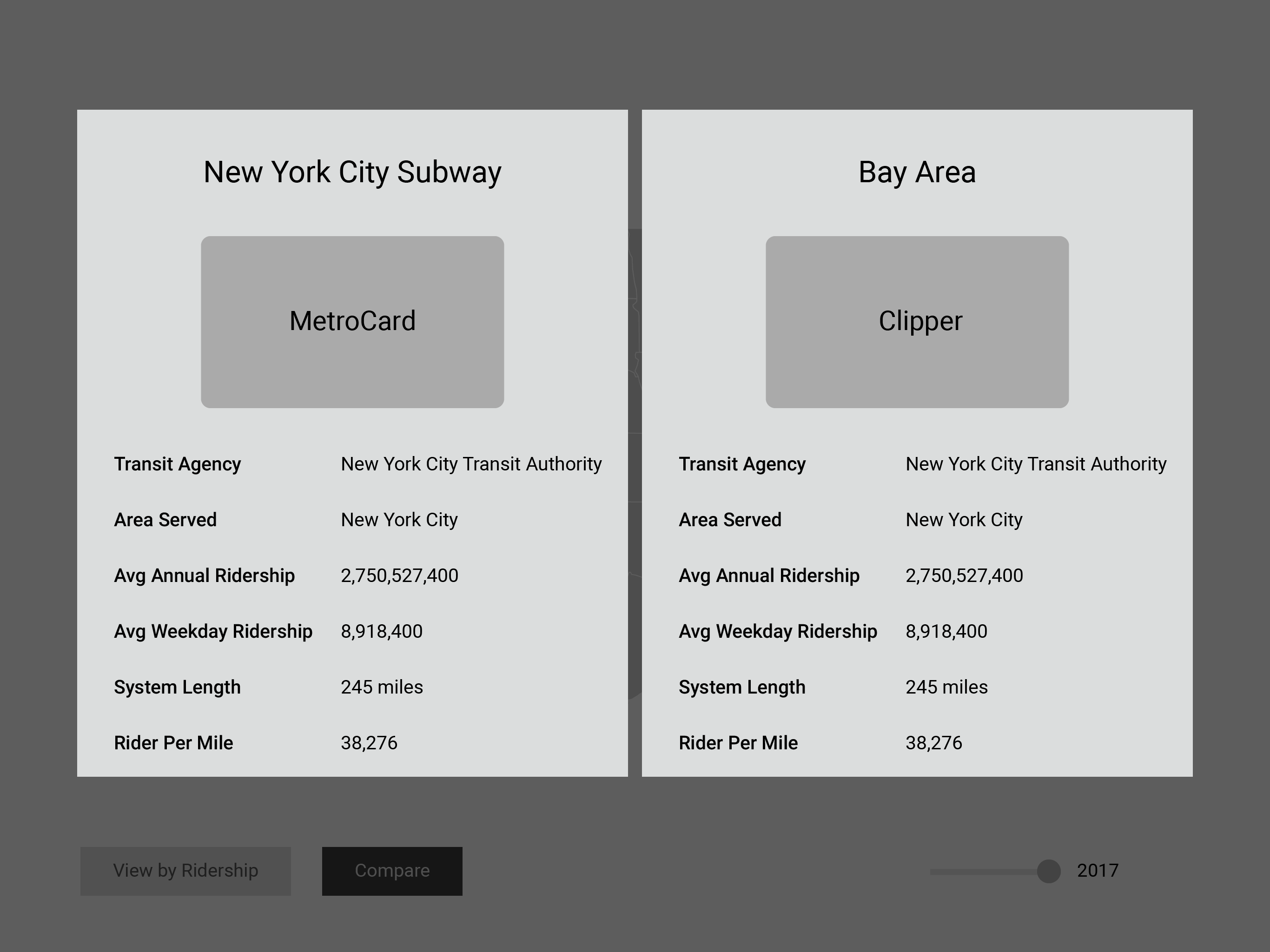
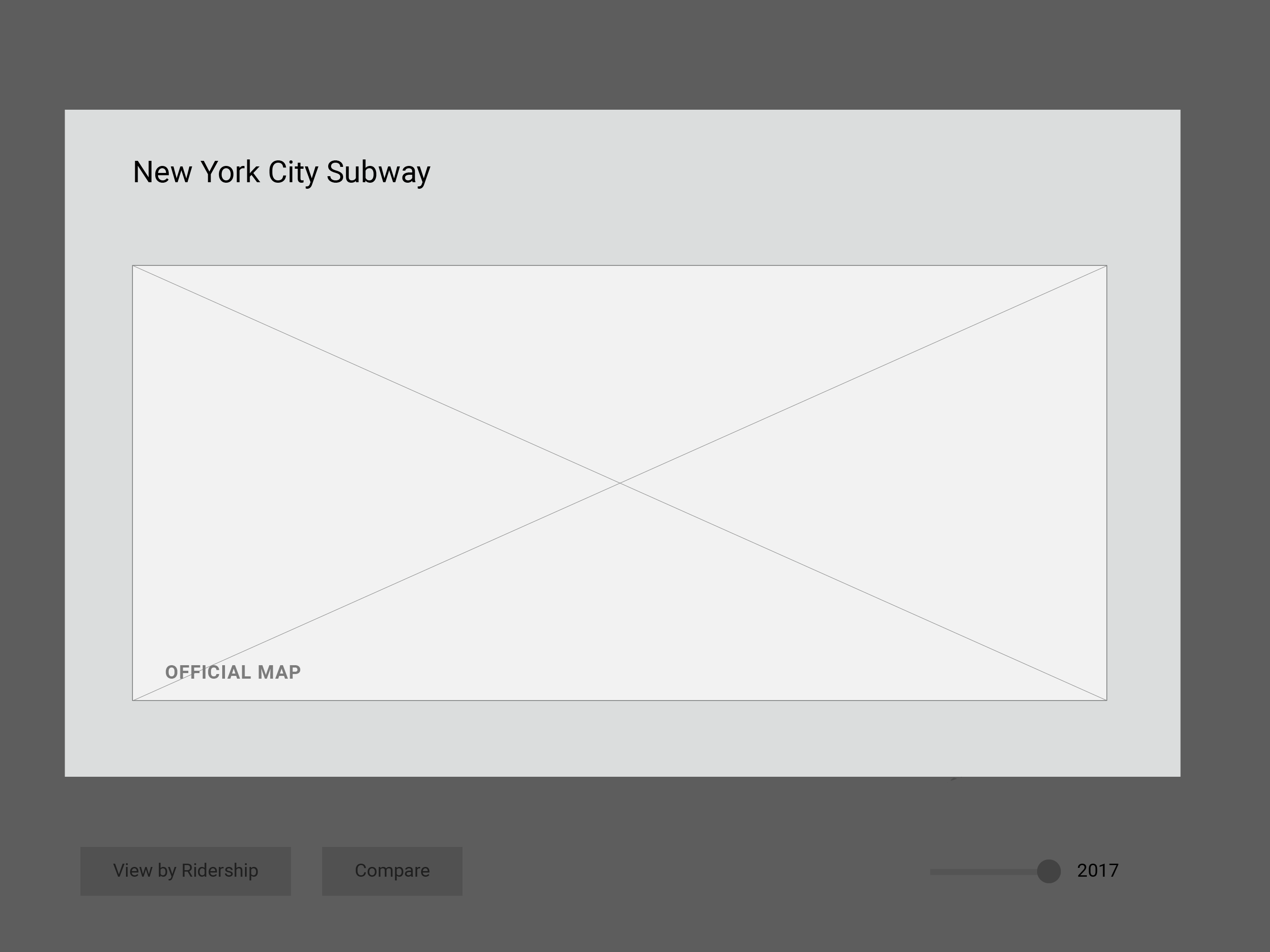
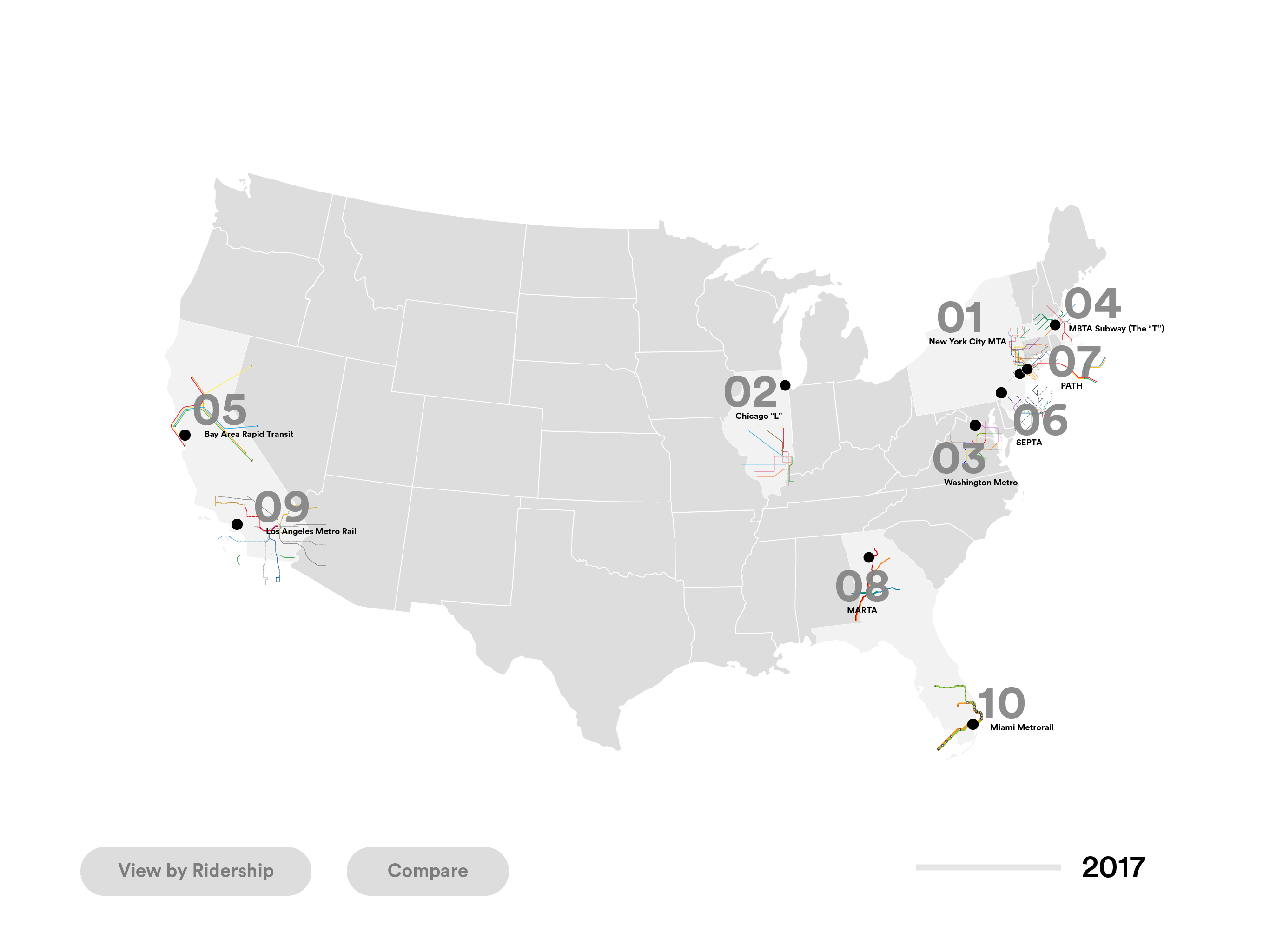
STYLEBOARD
I was extremely inspired by the simplicity of these maps. The forms and the colors of the lines are the focus and the background is almost undetectable. The lines are big, bold, and bright.
Maps can be extremely convoluted, so it was important to keep the other areas of the design as simple and as clean as possible.
Visualizing Transportation
These are the top 10 major mass transit systems of cities across the United States. Seeing the map was extremely important because it acts as the skeleton of a city. Users can scrub along the timeline on the bottom to see when each system was opened to the public.
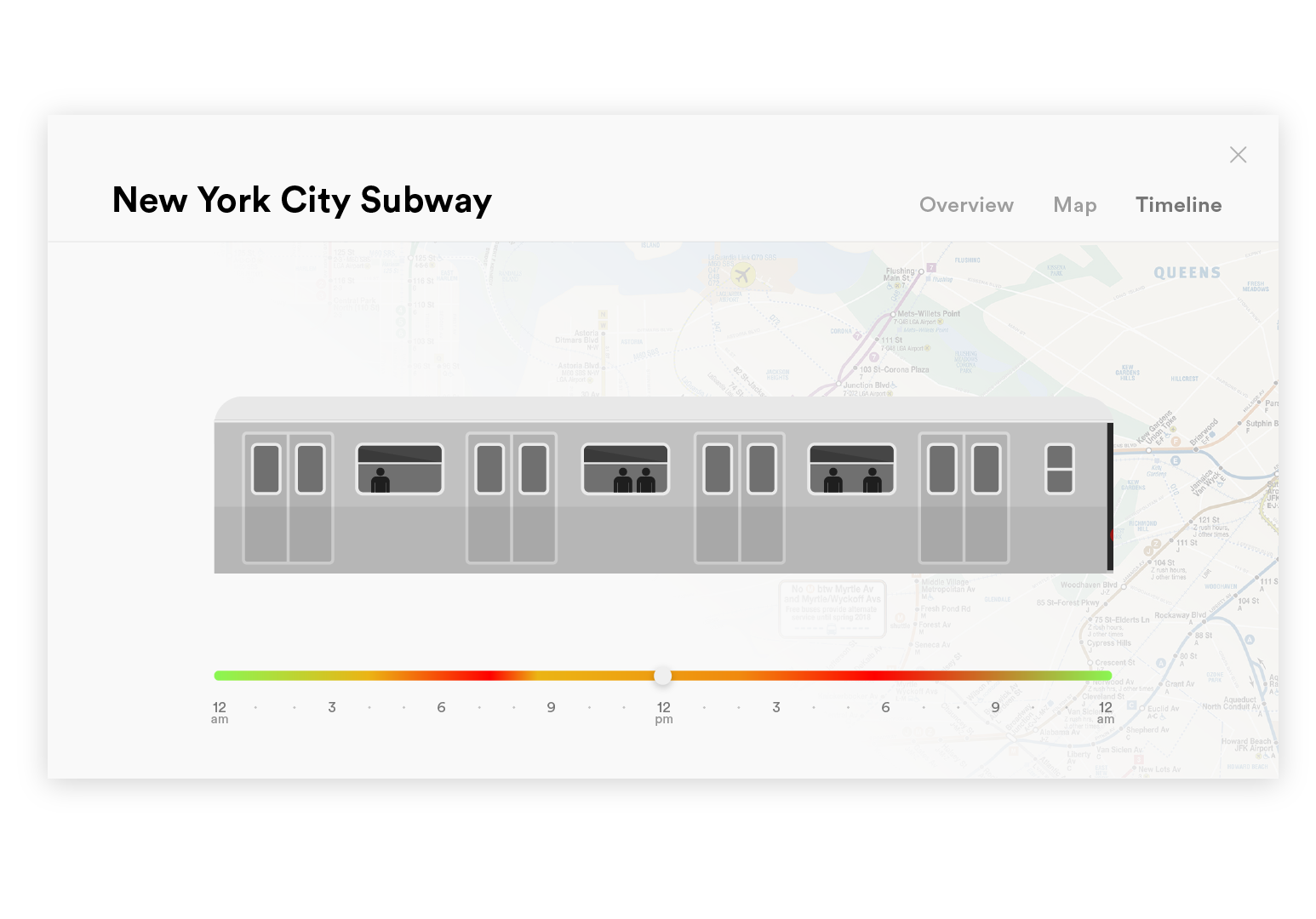
Seeing Congestion
One of the most important factors that can make or break the experience of a trip is how crowded it is. The Timeline feature allows users to have an overview of congestion throughout the day. The red areas on the timeline are the most crowded times of the day. This timeline also lets users know the operating hours of each system. The design of the train cart is modeled after the train carts of each system.
Want to see more? Check out the full process deck!
KATHLEEN HUANG
UI / UX / Visual Design

